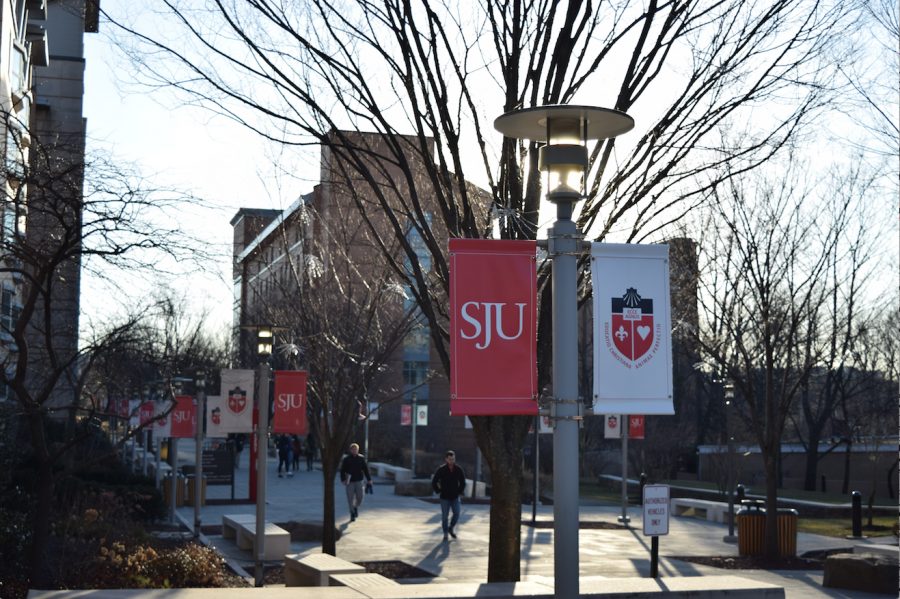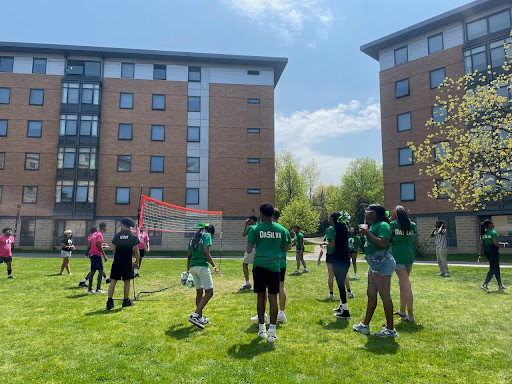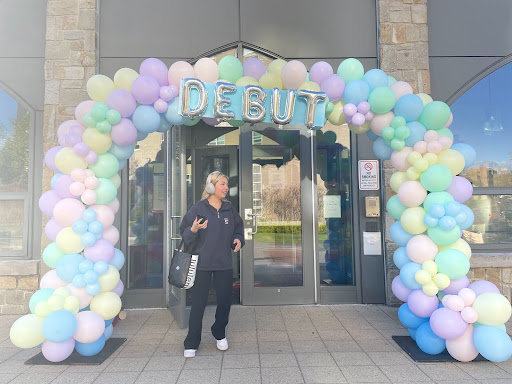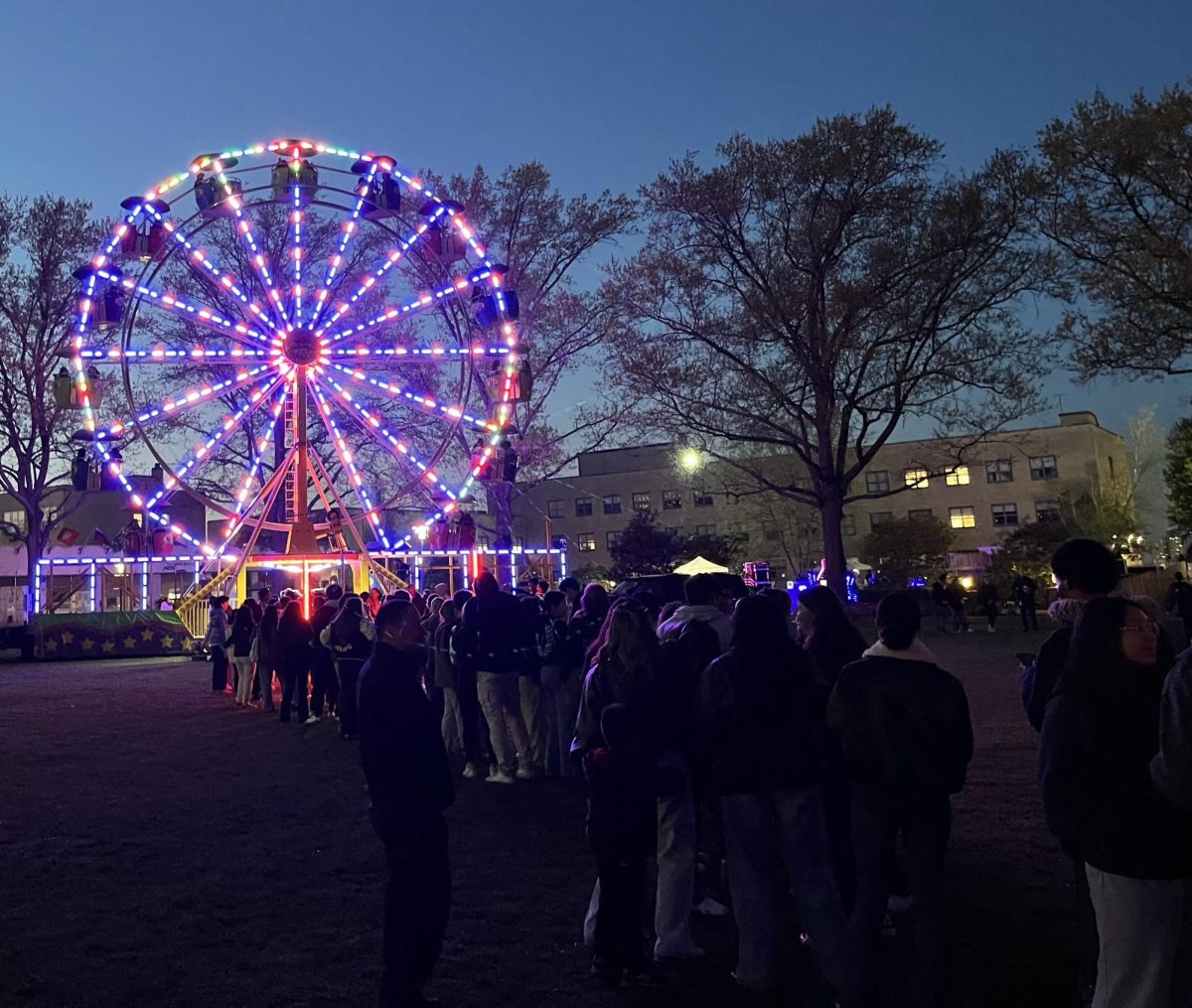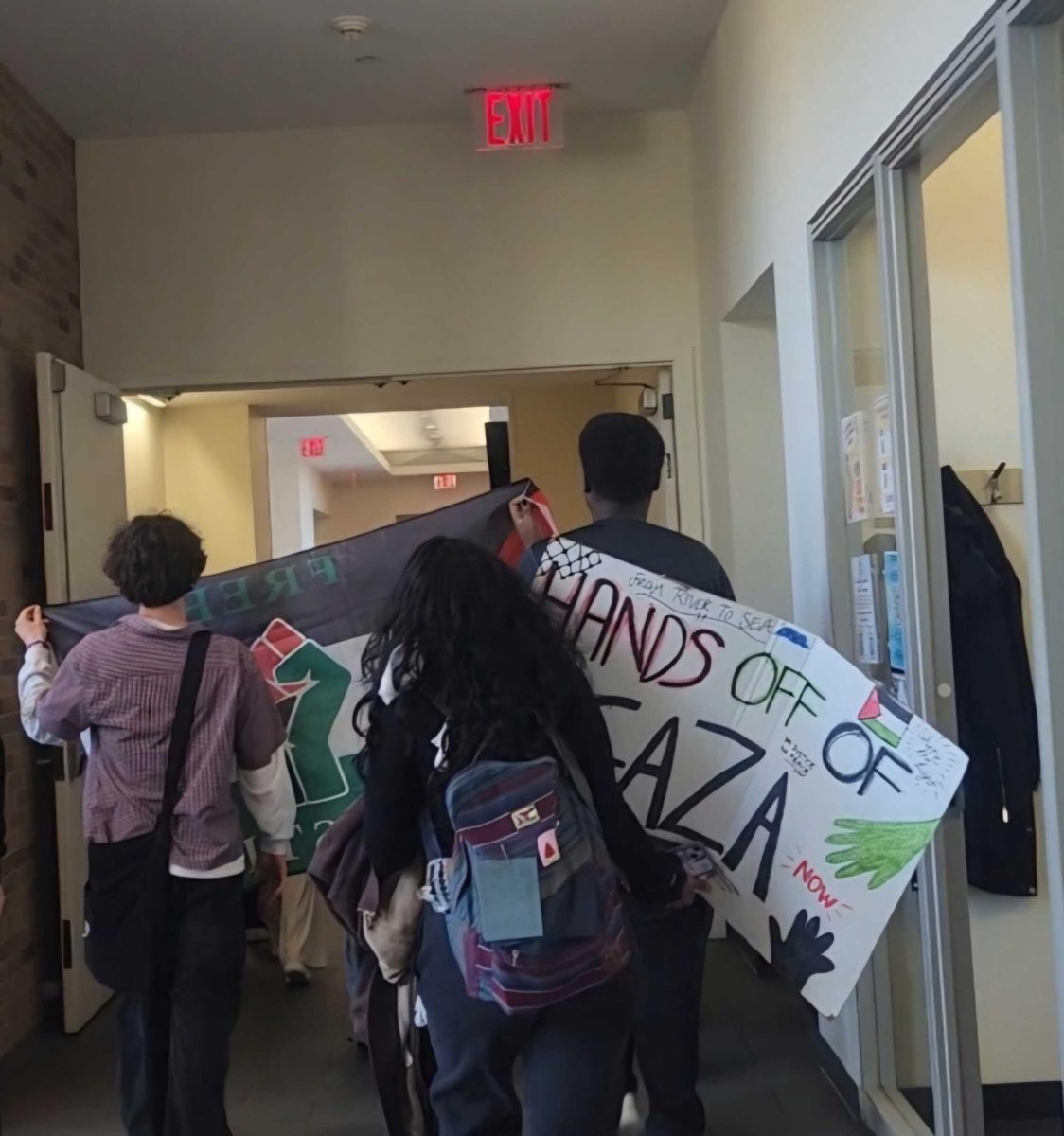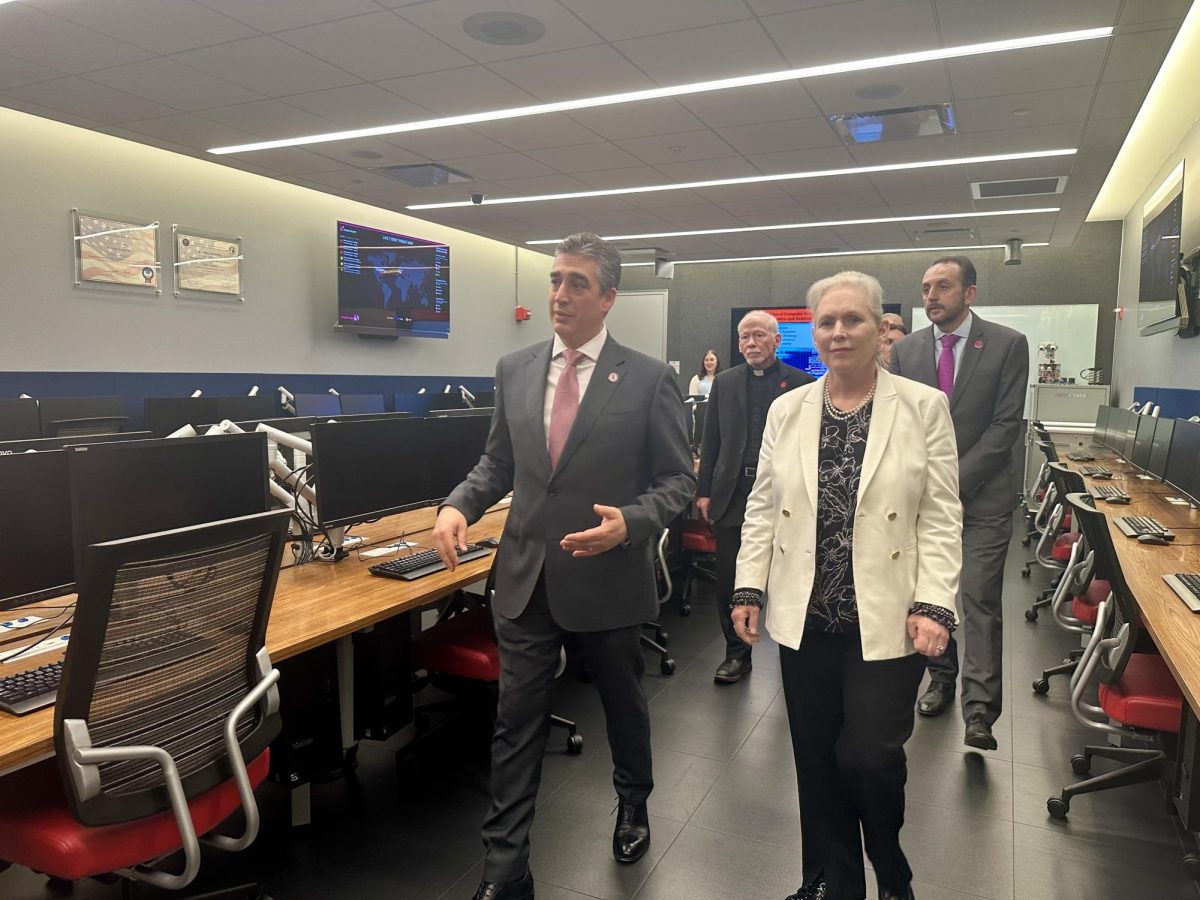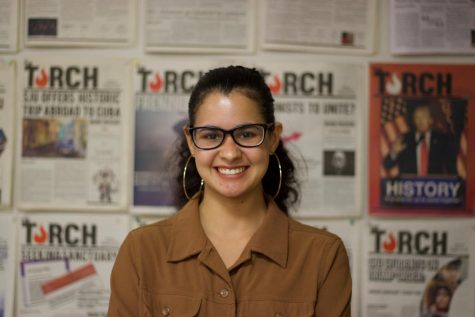When #SurvivingSJU trended nationally last month, among the flurry of tweets were some students questioning the accuracy of the University’s reported number of sexual offenses.
St. John’s Clery Report, a federally mandated crime report released every fall, said there were four accounts of rape on campus in 2016 and again in 2017, the last year on file.
That figure seemed surprising to many, in comparison to the litany of unsubstantiated but powerful accounts of sexual violence that were being posted on the social media platform.
In response, the Torch looked deeper into the reported statistics, analyzed recent anonymous student campus climate surveys and reached out to St. John’s spokesperson Brian Browne to gain an understanding of the University’s sexual assault reports.
Executive Director of Student Wellness Luis Manzo and Director of Public Safety John Breheny provided explanations for the questions the Torch posed. Specifically, the Torch sought the University’s explanation as to why there were only four reports of rape in its two most recent Clery Reports yet in a campus climate survey 20 percent of 1,332 students surveyed “reported an incidence of sexual violence during the past academic year.”
Manzo defended St. John’s reported figures by saying that “1 in 5 women experience violence in college” while noting how the Center for Disease Control and Prevention has termed sexual violence as one of the nation’s most underreported crimes.
“The data that we have collected suggest that the St. John’s community follows the national trend for under-reporting,” Manzo said.
It’s also important to understand the major differences between the Clery Report and the campus climate surveys.
Specifically, the Clery Report — also known as Annual Security and Fire Safety Report — is a federally mandated report of categorized campus crimes that all universities must compile and publish annually. The campus climate surveys are voluntary questionnaires that are emailed to students to “estimate the incidence and prevalence of different forms of sexual assault and misconduct” that they may have experienced at St. John’s.
The two reports, and the answers provided to the Torch by Manzo and Breheny, give insight behind one of the most pressing concerns of students today: The prevalence of sexual violence on college campuses nationwide and what St. John’s is doing about it.
Here is the breakdown in their words, edited only for length:
What is the difference between the Clery Report and the Campus Climate Survey?
Luis Manzo: “The Clery Report reflects students who have experienced sexual violence on campus and reported this incident to the University, whereas the Climate Survey is a confidential and anonymous self-reported survey of student experience.”
John Breheny: “Under Clery, colleges and universities across the country, including St. John’s, report certain crimes occurring: 1) on campus, 2) adjacent to campus, or 3) in university owned buildings. The Campus Climate Survey differs from the Clery report in that the campus climate survey did not limit responses to incidents occurring “on-campus, adjacent to campus or in university owned buildings.” Incidents occurring off campus or in a building not owned by the university, do not meet the reporting criteria of the Clery Act. As a result, they are not included in that report.”
What warrants a case to be reported under the Clery Act?
Breheny: “There are two primary factors considered when disclosing incidents under the Clery Act: 1) the type of offense, and 2) the location of the offense.”
When reading the Clery Report, four cases of “rape” were reported in 2017, while the Campus Climate Survey of the same year showcased 265 of the 1,332 who took the survey “reported an incidence of sexual violence during the past academic year.” How do you explain the stark difference between the two figures here.
Manzo: “According to national statistics one in five women experience violence while in college. As has been reported by research and the CDC sexual violence is one of the most under-reported crimes in the United States. The data that we have collected suggest that the St. John’s community follows the national trend for under-reporting.”
The Torch also found more data that dates back to 2009 on campuscrime.ny.gov that showcased more results of sexual assault reporting. What does the University think of that data?
Breheny: “The statistics listed on the 2009 [through] 2013 campuscrime.ny.gov website are for the criminal offense of “sex offense-forcible” and reveal a total of 15 reported incidents over five years for an average of three incidents per year. The Clery Act was amended after 2013 and the offence “sex offence-forcible” is now broken into two separate offenses; 1) Rape and 2) Fondling.
From 2015 [through] 2017, and in 2016, two incidents of fondling were reported for a total of 11 incidents or an average of 3.6 incidents per year. A review of the 2014 Clery report revealed an additional six incidents. From 2014 [through] 2017, a four year period the university disclosed a total of 17 reportable incidents under the Clery Act. Thus, the trend associated with the university’s response is an increase of reportable incidents to approximately 4.2 per year.”
On the 2017 Campus Climate Survey, it states that: “Not thinking the incident was serious enough to report (46%) and concerns that situation would not be kept confidential (31%) were the top reasons students did not report incidences of sexual violence.” Although the Torch asked about these results, Manzo gave comment for the 2018 data of the Campus Climate Survey instead.
Manzo: “The 2017 and 2018 Climate Survey questions were as follows: “which of the following are reasons why you did not contact administrators, faculty, or other officials at St. John’s?”
According to our most recent data, in the 2018 Climate Survey, the top reasons women shared for not reporting an incident of sexual battery are:
- Not thinking the incident was serious enough to report – 58.5: We encourage all students who have experienced any form of sexual violence regardless of location- on or off campus, and no matter who the perpetrator is.
- 52.2% Did not want action taken [and] 24.4% did not want the perpetrator to get in trouble: These concerning numbers speak to how sexual violent behaviors have been normalized and tolerated and accepted within our society. Furthermore, these data demonstrate the challenge our community and society as a whole faces in recognizing the harm and impact of sexual violence. In response we continue to provide educational and awareness initiatives regarding appropriate sexual behavior to empower students to change this cultural norm. An example is the SOAR Offices, “Knowing Yes” affirmative consent education.
- Did not need any assistance – 49.2%: We encourage all St. John’s students to learn about the reporting options, interim measures and support we can provide. We encourage this by highlighting the benefit of connecting with the confidential Campus Support Advisor (718-990-8484).
- Concerns that situation would not be kept confidential – 15.0%: All disclosures and reports of sexual violence are kept private due to the nature of the incident. In addition, we communicate this to students through various modalities the confidential and non-confidential options as defined by Federal mandated reporting requirements as per Title IX.”
For the Climate Survey report, why did 2,700 undergraduates in 2015 and 1,300 in 2017 take the survey (which is emailed to students on their SJU emails)?
Manzo: “In 2015, St. John’s was part of the Campus Climate Survey Validation Study (CCSVS), conducted by RTI International. This study was sponsored by the Bureau of Justice Statistics (BJS) and the Office on Violence Against Women (OVW) and included 23,000 students at nine institutions of higher education. In 2015, the survey was sent to a random sample of over 5,500 St. John’s students as this is a common approach to survey large cohorts of individuals.”
What initiatives is the University implementing as a result of these surveys?
Manzo: “In an effort to increase student’s knowledge of the process and the expectations for faculty and staff to report incidents we created a Title IX Reporting Poster that outlines the process. We also developed a brochure for survivors of sexual violence entitled, “You Are Not Alone.” This brochure provides support, and important information about prohibited conduct, available resources on and off campus, and ways to file a complaint in order to assist survivors in the reporting process, recovery process, and in their efforts to heal. The student survivor will be contacted by the Title IX Coordinator or Deputy within 24 hours of the report to schedule an in person meeting.
We [also] created “Be the Bridge,” a faculty toolkit for the prevention of, and response to, sexual violence in order to maximize campus community awareness and safety, and ensure a survivor-centered response to violence and access to community resources.
In an effort to improve support services for students who have experienced sexual violence, we developed a protocol for using a private ambulance service (with costs covered by the University), when appropriate, to transport students to a designated SAFE Program hospital. Our Residence Directors, full time, on-call professionals, who have been trained by SAVI, will ride along to accompany the survivor and ensure the student is connected with an advocate at the hospital. This option is one of three transportation options offered to student survivors.”
What do you hope to see as a result of the findings of these surveys?
Manzo: “St. John’s University’s survivor-centered approach to responding to victims of sexual violence has become a team responsibility. Resident Advisors and on-call Residence Life professional staff have received training from SAVI, one of our community partners. Public Safety, along with our community partners NYPD-SVD, and the Queens DA-SVB have received training on a myriad of topics including trauma informed investigation and the FETI technique, stalking perpetration tactics, and the neurobiology of trauma. Title IX Coordinators, Investigators, Public Safety, the Campus Support Advocate and the Dean of Students all work collaboratively to appropriately respond to each survivor’s unique circumstances.”













